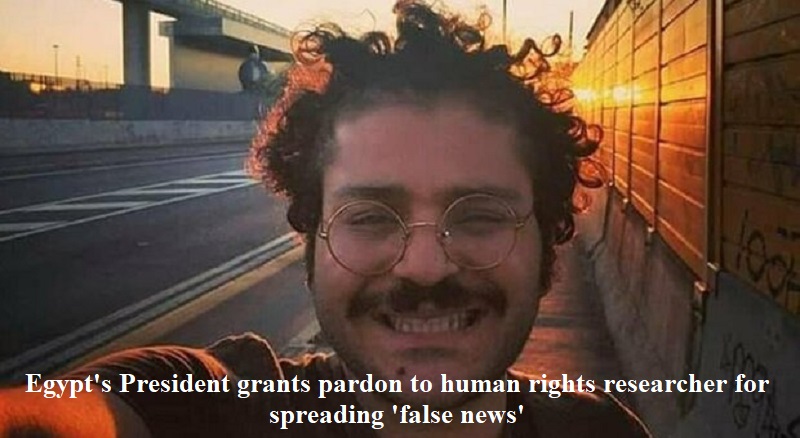
According to state-run media, Egypt’s President Abdel Fattah el-Sisi has granted pardons to human rights researcher Patrick Zaki and lawyer Mohamed el-Baqer.
The pardon for Patrick Zaki was issued on Wednesday, just a day after he received a three-year prison sentence for allegedly spreading “false news.” The 32-year-old researcher was imprisoned based on an article he wrote that brought attention to the discrimination faced by Egypt’s Coptic Christian minority.
In addition to Patrick Zaki’s pardon, President el-Sisi also granted clemency to lawyer Mohamed el-Baqer, who represents Egypt’s most prominent political prisoner, Alaa Abd el-Fattah. El-Baqer had been detained in 2019 and was subsequently sentenced to four years in prison on charges of disseminating false information, misusing social media, and affiliating with a “terrorist” group.
Human rights activists welcomed the news of the pardons. Hossam Bahgat, the executive director of the Egyptian Initiative for Personal Rights, which represented Patrick Zaki in court, called for the immediate release of thousands of others detained in Egypt on political grounds.
The US Department of State expressed concern over Patrick Zaki’s sentencing and urged for his and other unjustly detained individuals’ immediate release.
Patrick Zaki, a graduate student at the University of Bologna, was arrested by Egyptian authorities in February 2020 upon his arrival at Cairo International Airport while visiting his family.
Italy’s Prime Minister, Giorgia Meloni, reaffirmed Rome’s unwavering commitment to resolving Patrick Zaki’s case positively.
Egypt has recently pardoned several detainees following international scrutiny of its human rights record during the hosting of the United Nations climate change summit in November.
Despite these pardons, it is believed that thousands of political prisoners still remain in Egyptian custody, with many being held without trial.
To engage with the severely weakened opposition after a decade of repression following the overthrow of the country’s first democratically elected president, Mohamed Morsi, the government initiated a “national dialogue” this year in an attempt to foster dialogue.

Post Your Comments